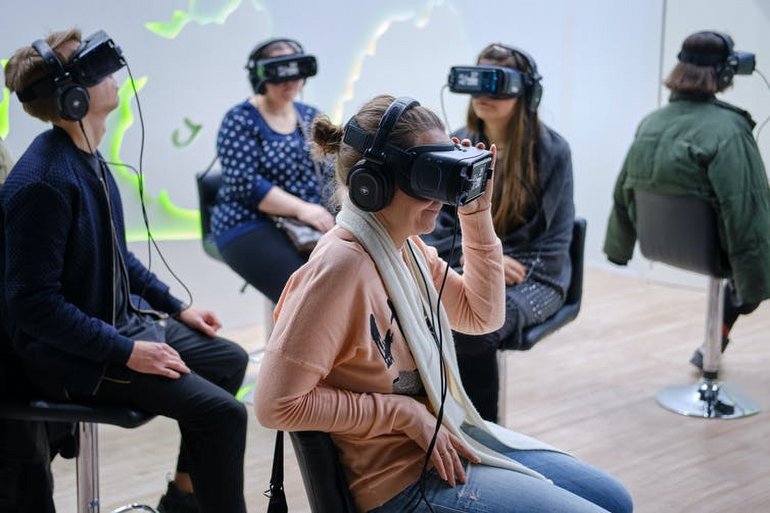After Facebook rebranded to Meta and focused on the “metaverse”, Microsoft announced that it would enter this space as well. While Meta suggests that the metaverse will eventually allow us to interact across educational, business and social contexts, Microsoft seems to be focusing specifically on the virtual office space for now.
One of the most asked questions these days is what the Metaverse really is and how central the presented vision will truly be in our daily lives.
The idea itself is actually not new. Science fiction writer Neal Stephenson defined this world with the term “metaverse” in 1992’s cyberpunk novel Snow Crash, presenting a 3D virtual world where people represented as avatars can interact with each other and with artificial intelligence.
As with a vision of a grand future that doesn’t exist yet, many people have approached the metaverse by their own definition. If the idea is new to you, you should know that there are three main topics that will form a metaverse (or meta-universe). These:
- A virtual world: We can say that this is the most important feature of the metaverse. You can explore using a computer, game console, mobile, wearable technology or other device, experiencing 3D graphics and sound along the way. The idea is that this makes you feel more present in the metaverse and possibly less present in the everyday world (where your body is).
- Virtual reality: You need a VR headset for this. It can be said that the aim here is to feel more “inside” by immersing yourself in the virtual world.
- Other people: Metaverse is social. There will be many people represented as avatars. Some of these avatars can be robots, virtual agents, and AI entities. You can meet other people or even do things together. Given its history as a social network, the social aspect is likely to be central to Facebook’s metaverse.
Metaverse fans and some researchers believe that communication can be more natural than videoconferencing. For example, you can use gaze to show who you are addressing, meaning your avatar may turn its head to look at another person. Also, your avatar can go and sit next to someone else’s avatar to start a conversation.
Two key features of Metaverse
- Persistence: This means that the virtual world is available whenever you want to visit it. It can be modified by adding new virtual buildings or other objects, and more importantly, the changes will stay in place the next time you visit. You can settle down and own a part of this world. Metaverse will be based on user-generated content—your digital creations and personal stories—just as social media does today.
- Connection to the real world: In some visions of the Metaverse, virtual things in the virtual world actually represent real things in the real world. For example, you can fly a virtual drone in the metaverse to steer a real drone in the real world. People refer to real and virtual as “digital twins”.
Different companies will likely have their own visions and even local versions of the metaverse, but you may be able to switch from one to the other as they will probably all be interconnected like the internet.
 Shutterstock
ShutterstockSome features are likely to be more attractive and practical than others. Gaming may seem like a reasonable step, as many gamers already love to play online, and some games are already in the metaverse to some extent.
We can safely say that the idea of being able to socialize or meet other people and feel that you are really with them is also quite attractive, especially in today’s epidemic period.
We don’t have a clear idea about meta’s metaverse properties yet. CEO Mark Zuckerberg talked about different possibilities when announcing the rebrand. You can appear as a hologram in a real meeting or play chess with someone from all over the world on a virtual chessboard superimposed on the real world.
Could it be the interface of the future internet?
Facebook’s metaverse vision aims to be our future web interface. However, it is not yet clear whether we will be able to access all internet services through 3D virtual worlds and virtual reality headsets in the future.
Virtual reality headsets still seem a bit of a niche technology, despite attempts by many major companies to launch them in recent years, including Facebook, which bought Oculus.
Returning to Stephenson’s original vision of the metaverse. . . It was very exciting, but also full of possibilities for harm, both online and in the real world, from addiction to delinquency to the erosion of democratic institutions. Interestingly, Stephenson’s metaverse was mostly owned by large corporations and governments were viewed as largely unimportant extensions.
Given the current tensions between major tech giants and governments around the world over privacy, freedom of speech, and harm online, it’s worth considering seriously what kind of metadata we want to create and who will create, own and regulate it.